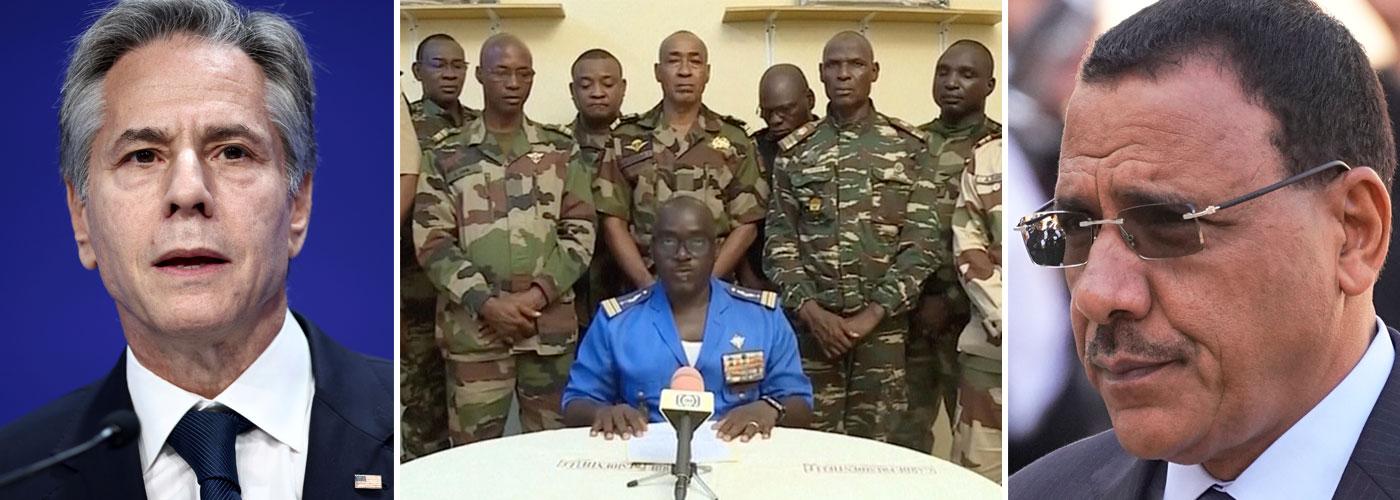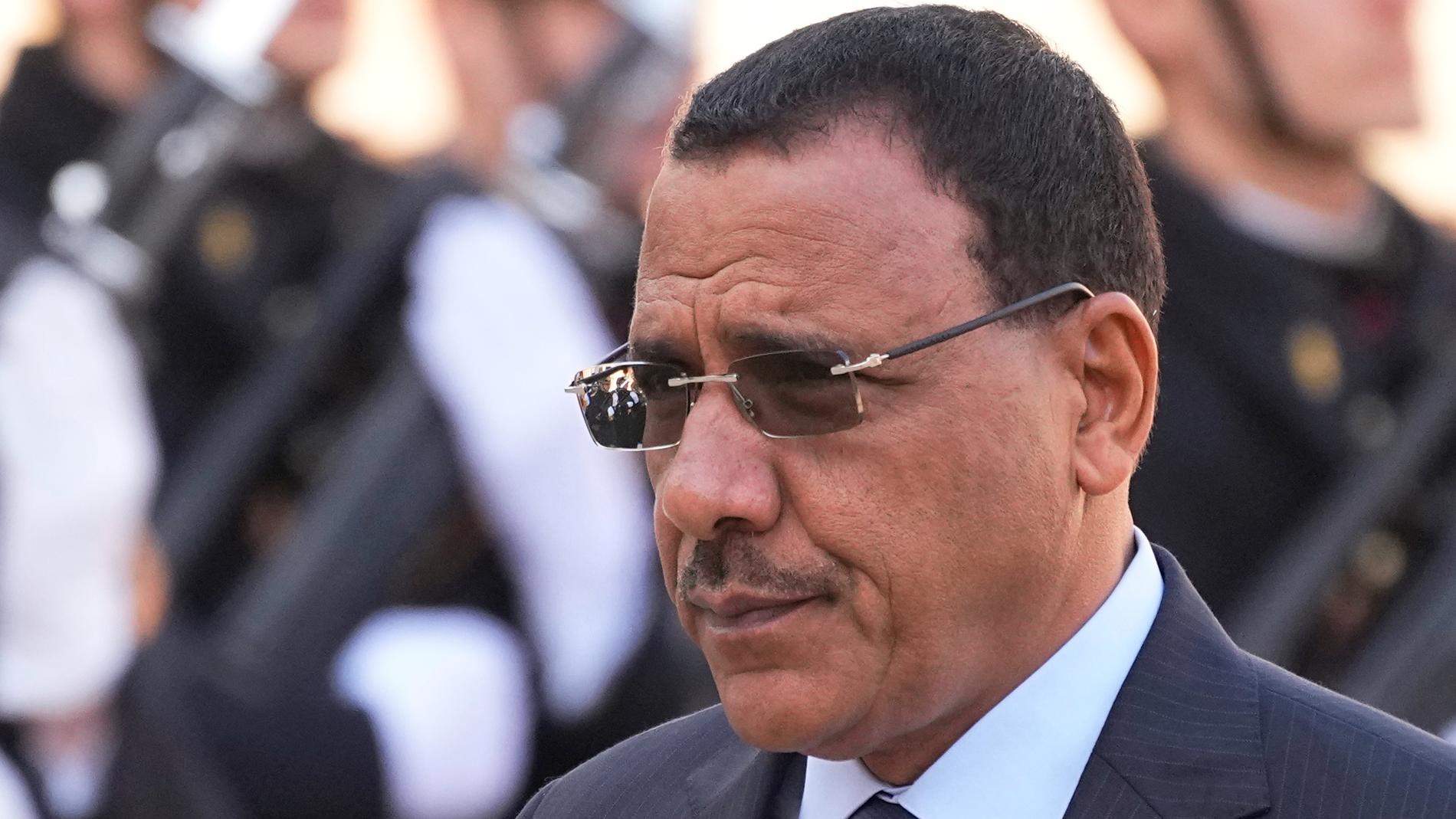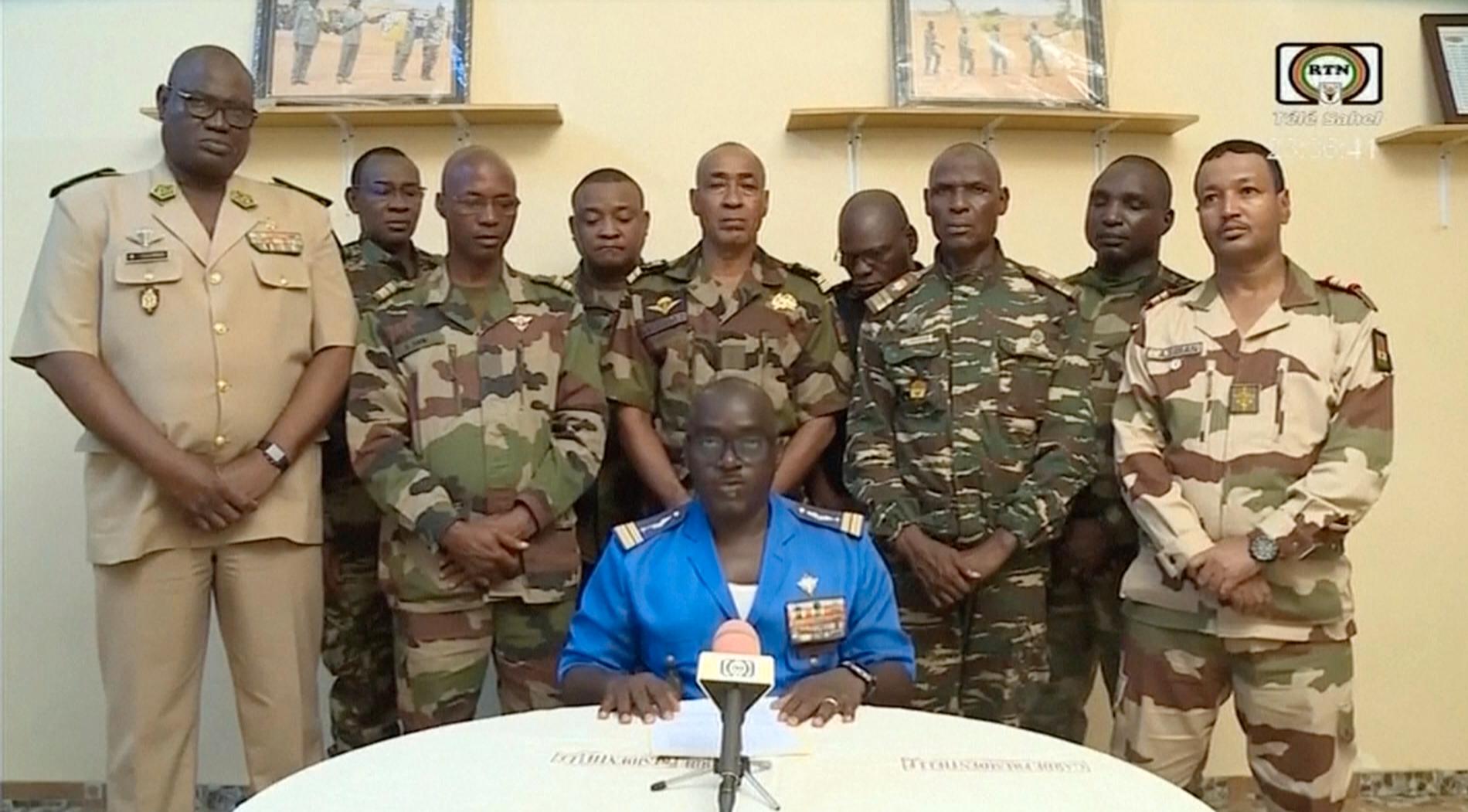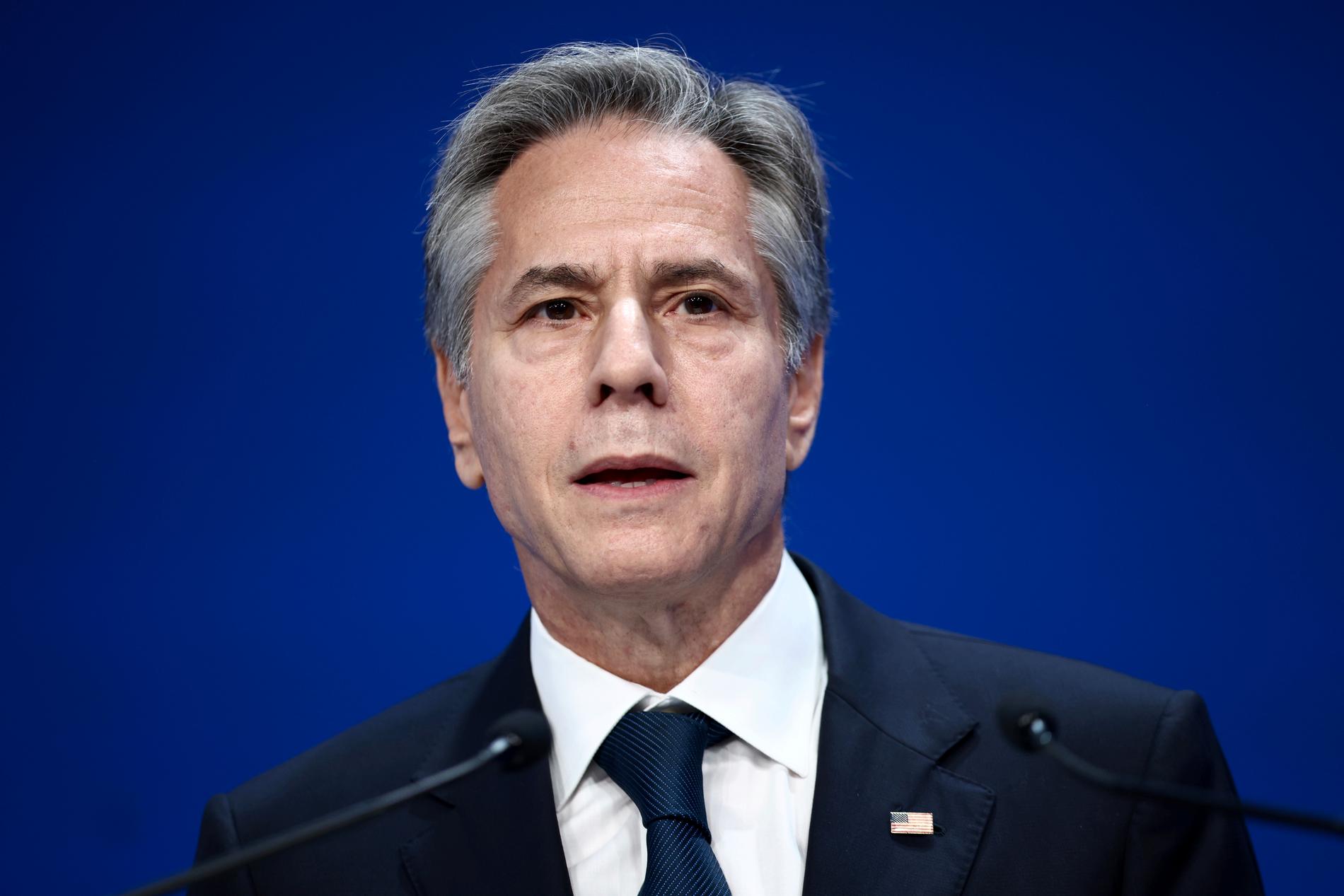
The military in Niger: We have deposed the president
TT-AFP
Updated 06:48 | Published at 01:24

Nigerian soldiers state on national television that they deposed the country's president Mohamed Bazoum. Archive image. Photo: Michel Euler/AP/TT
News
Nigerian soldiers said in a statement on national television late Wednesday that they had deposed the country's president, Mohamed Bazoum.
The borders have been closed and a curfew has been imposed, according to the military.
Colonel Amadou Abdramane said in the televised address, surrounded by nine other soldiers, that they had "decided to end President Bazoum's rule".
The soldiers also said that the country's borders and institutions had been closed and that a night curfew had been imposed "until further notice".
- This is the result of a continued deterioration of the security situation and poor economic and social governance, said Amadou Abdramane.
The statement from the military prompted US Secretary of State Antony Blinken to immediately demand the release of Mohamed Bazoum after the soldiers surrounded the presidential palace and declared that they had seized power.
- I spoke with President Bazoum earlier today and made it clear that the United States strongly supports him as the democratically elected president of Niger. We demand that he be released immediately, said Blinken, who is currently visiting New Zealand.
France also condemned on Thursday "all attempts to seize power by force" in Niger. Foreign Minister Catherina Colonna writes on the messaging service X, formerly known as Twitter, that France supports the call of the African Union and Ecowa to restore the independence of Niger's democratic institutions.

Nigerian military appeared late Wednesday on national television in Niger and announced that they had ousted the country's president, Mohamed Bazoum. They also announced that the country's borders had been closed and that curfews were in place "until further notice". Photo: ORTN via AP/TT
Started earlier
The coup was launched earlier on Wednesday when the country's president, Mohamed Bazoum, was detained by members of the presidential guard, according to sources close to Bazoum.
The presidential office stated earlier in the day that the members of the presidential guard tried unsuccessfully to get support from the national armed forces.
Furthermore, the office stated that the army is ready to attack the part of the presidential guard that is involved.

US Secretary of State Antony Blinken. Photo: Henry Nicholls/AP
Mediator on the way
On Wednesday evening, UN Secretary-General António Guterres spoke with Bazoum, according to Guterres' spokesperson.
"He expresses his full support and solidarity with the Nigerian president," writes the spokesperson at X.
The presidential office in Niger previously stated that the president and his family are doing well.
The West African Economic Association Ecowas announced that Benin President Patrice Talon is on his way to Niger to mediate.
Bazoum was elected in 2021. He then took over the helm of one of Africa's poorest and most coup-prone countries.
FACTS
Curtsy
The West African country, which consists of two-thirds of the desert, is one of the world's poorest countries.
Half of the country's 26.2 million inhabitants live in poverty, partly due to the world's highest birth rate of 6.8 children per woman (2021).
Niger has suffered from chronic political instability since it gained independence from France in 1960.
During its independence, the country has suffered four coups d'état, most recently in February 2010 when the then president Mamadou Tandja was overthrown.
The country's first ever democratic transition of power took place in 2021 when Mohamed Bazoum was elected president following the voluntary resignation of his predecessor.
Like neighboring Mali and Burkina Faso, Niger is struggling with a jihadist insurgency that started in Mali in 2012 and spread across borders.
Inga kommentarer:
Skicka en kommentar